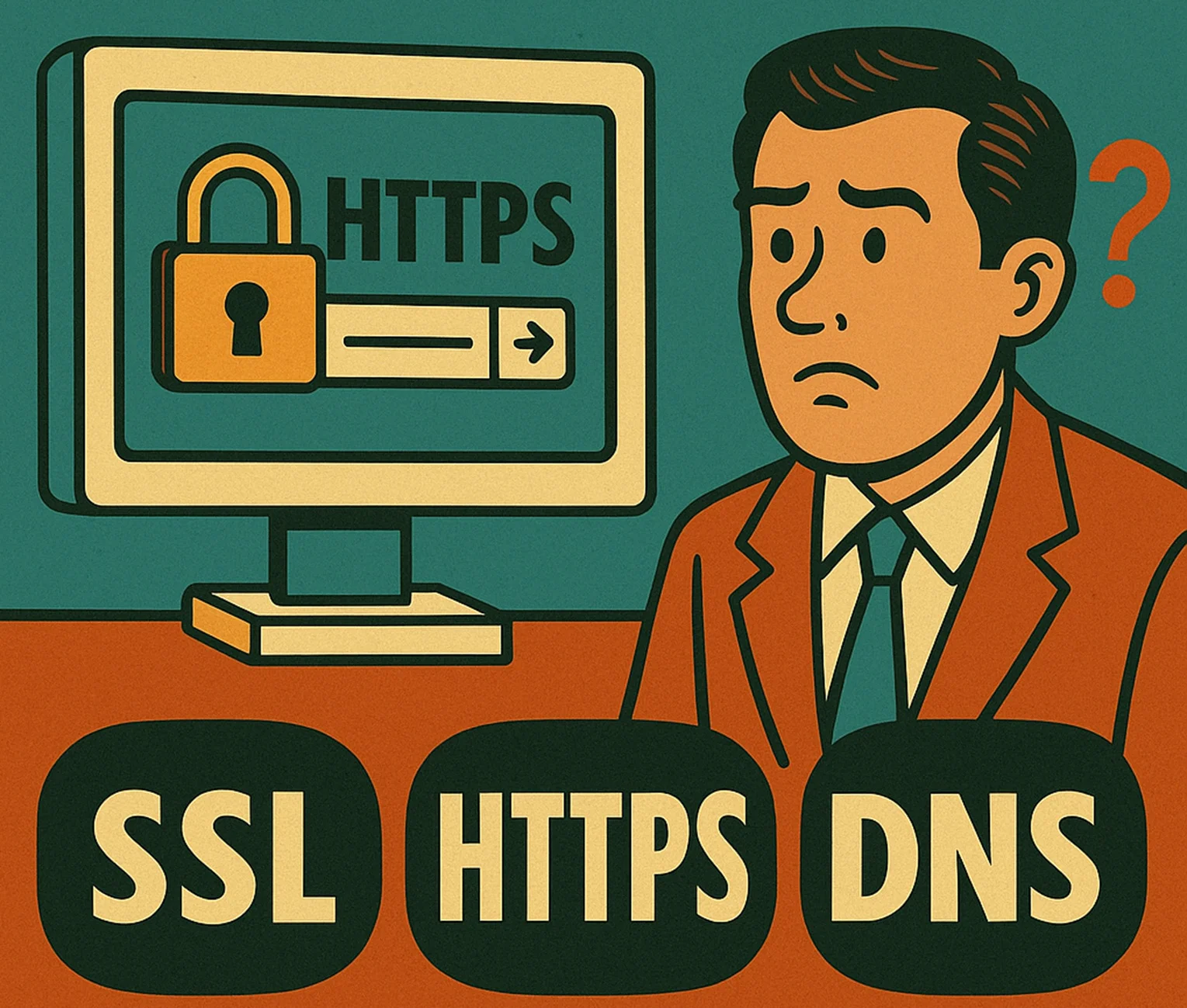So, you’ve launched your startup website. You have a sleek design, some killer copy, and your “Contact Us” button actually goes somewhere. But then someone asks, “Is your site secured with HTTPS?” and you blink like a deer in HTTP headlights.
Let’s fix that. Whether you're working with a web development agency for startups (hi 👋) or flying solo, you should know what SSL, HTTPS, and DNS actually mean — and why you should care.
Wait, What Even Is SSL?
SSL stands for Secure Sockets Layer. It’s a cryptographic protocol (don’t panic) that encrypts the connection between your user’s browser and your website. Think of it like a protective tube — no one can eavesdrop or steal data while it’s traveling.
Today, SSL has been replaced by TLS (Transport Layer Security), but the term “SSL” stuck around like an old nickname. And if your site doesn’t use it? You’ll scare away users with browser warnings and destroy your SEO faster than you can say “Google penalty.”
HTTPS Is Just HTTP With a Lock (Literally)
HTTP is how your browser talks to a website. Add an “S” (for “Secure”) and boom — now it uses SSL/TLS. This is what gives you that little padlock icon in the browser bar.
Without HTTPS, your login forms, checkout pages, and even newsletter signups are vulnerable. And let’s be honest — no one trusts a startup website that says “Not Secure.”
- Startup website without HTTPS? Red flag.
- Web development agency for startups didn’t set this up? Also a red flag.
What the DNS Is Going On?
DNS stands for Domain Name System. It’s the internet’s phone book. When someone types yourcoolstartup.com into their browser, DNS tells it which server to connect to.
If DNS isn’t configured properly, your site might be unreachable. Or worse, reachable… but by accident redirecting people to somewhere else entirely.
How to Secure Your Website Like a Pro (Even If You’re Not)
Get an SSL Certificate
Most hosting providers offer free SSL certificates (thanks to Let’s Encrypt). Just enable it in your hosting dashboard. If they try to charge extra, it’s 2025 — find a better host.
Force HTTPS
Redirect all HTTP traffic to HTTPS using your .htaccess file (Apache) or server config (Nginx). Or let your web dev agency handle it. We love this stuff.
Check Your DNS Records
Use tools like DNSChecker or your registrar’s dashboard to verify that your domain points to the correct IP and that all records (A, CNAME, MX, etc.) are in order.
Test Everything
Use SSL Labs to test your SSL setup. If it scores below an A, your startup deserves better.
When to Call In a Web Development Agency for Startups
Setting up SSL and DNS isn’t rocket science — but it’s also not the best use of your CEO brainpower. If your time is better spent pitching VCs than parsing DNS zones, that’s where we come in.
We build startup websites that are fast, secure, and actually make sense. Our devs handle HTTPS, SSL, and the rest of the alphabet soup — so you can focus on scaling.
Want your startup site to scream credibility (instead of “security risk”)?
Fix My Tech Stack Final Thoughts: Don’t Let Web Security Be Your Startup’s Weak Link
- SSL = encrypted connection
- HTTPS = secure website
- DNS = your domain’s GPS
Set it up properly from day one, and your startup will look legit, rank better, and actually protect user data. Skip it, and you’ll be another “almost made it” case study on Twitter.
Your idea deserves a secure, credible home on the web. Let’s build that together.




